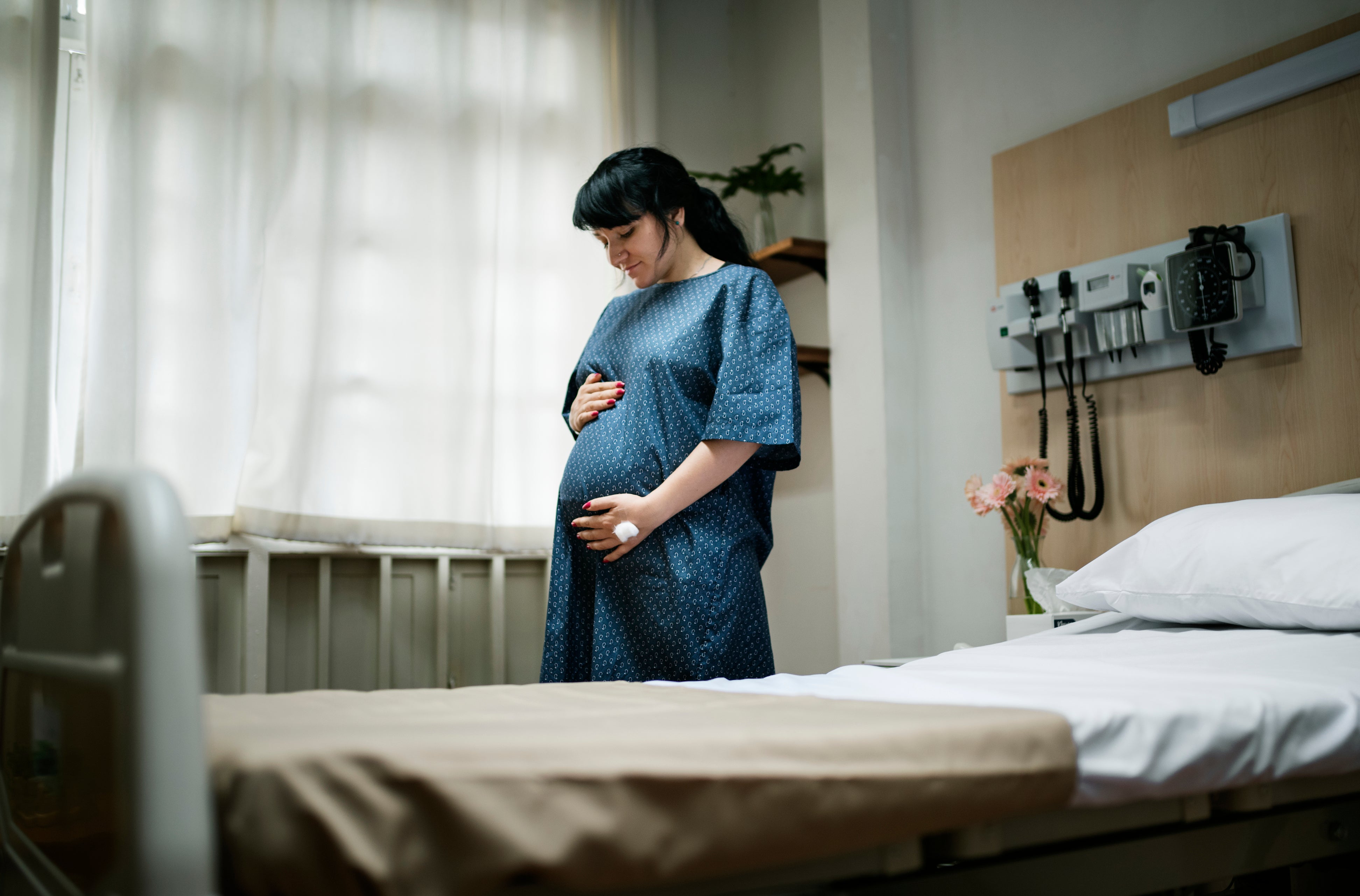NHS maternity services shouldn’t be promoting pseudoscience
In an age when medicine has become increasingly evidence-based, maternity seems determined to swim against the tide, writes Kim Thomas


If you give birth in Nottingham, and your placenta is slow to deliver, then expect to be offered aromatherapy oils such as jasmine or basil to speed it up. If you feel frightened or panicky during labour, then you might be offered frankincense to calm your “hysteria”. Perhaps your caesarean section scar is hurting, in which case, what better than an essential oil compress?
The revelation that the maternity unit at Nottingham University Hospitals NHS Trust has guidelines recommending aromatherapy to treat complications arising from labour has shocked many, with Susan Bewley, emeritus professor of obstetrics and women’s health at King’s College London, saying that the guidelines “make implausible and unsupported claims that appear to have been approved by colleagues asleep at the wheel”.
Yet for those of us who work with women who have experienced poor care at the hands of the maternity system, the news that Nottingham – currently under investigation by midwife Donna Ockenden for a series of baby deaths – is using quack treatments comes as no surprise. In an age when medicine has become increasingly evidence-based, maternity seems determined to swim against the tide.
Aromatherapy is used, not just at Nottingham, but at Coventry and Warwickshire and Royal Berkshire. The maternity unit at North Tees and Hartlepool is one of a number offering paid hypnobirthing classes, while Whittington Health, Chelsea and Westminster and Sheffield Teaching Hospitals promote acupuncture. At least five hospital trusts, including Chelsea and Westminster (again) and Maidstone and Tunbridge Wells, are offering moxibustion, a traditional Chinese medicine, to turn breech babies. This involves burning a dried herb next to the acupuncture points in the toes to stimulate energy flow.
These treatments all fly in the face of guidelines from the National Institute for Health and Care Excellence (NICE) – the body tasked with reviewing all available evidence as thoroughly as possible before drawing up recommendations. (In fairness, the Royal College of Obstetricians and Gynaecologists does recommend the use of moxibustion, despite the lack of a robust evidence base, or any plausible mechanism by which it might work.)
It should go without saying that pseudoscience has no place in modern medicine. It seems unlikely that cardiology and oncology departments are advising patients to use essential oils or traditional Chinese medicine to treat their conditions.
Yet maternity has long existed in a bubble. In 2015, the Kirkup report into failings of maternity care at Morecambe Bay found that “essential knowledge was lacking in several important aspects, local and national guidelines were followed inconsistently, and we discovered repeated instances of failure to apply basic principles of maternity and paediatric care”.
Many of us hoped that Kirkup would change things for the better. Since then, however, we have seen an even more damning report from Ockenden into failings of maternity care at Shrewsbury and Telford NHS Hospital Trust, where a misplaced focus on reducing caesarean births led to 200 babies dying or experiencing severe injuries, as well as the deaths of nine mothers. Staff were described as “overly confident” in their ability to handle complicated pregnancies and were unwilling to refer to specialists.
Similar investigations are under way at East Kent and, as we have seen, Nottingham. In Wales, an independent review highlighted problems at maternity care at Cwm Taf Morgannwg University Health Board. Figures from 2020 show that four in 10 maternity units have a safety rating of either “inadequate” or “requires improvement” from the Care Quality Commission (CQC), with only 1% per cent rated outstanding. The CQC highlighted a lack of skills and knowledge, poor working relations between obstetricians and midwives, and an inability to learn from mistakes as problems in the lowest-rated units.
At the Birth Trauma Association, we see the real-life consequences of poor maternity care: psychologically traumatised women, some with devastating physical injuries or babies with long-term health problems.
To keep up to speed with all the latest opinions and comment, sign up to our free weekly Voices Dispatches newsletter by clicking here
Despite a landmark legal ruling in 2015 that patients have the right to be properly informed about risks in health procedures, our charity hears numerous stories about information being withheld from women – as well as procedures being performed without consent and NICE guidelines flouted. Requests for pain relief are frequently denied, even in forceps or ventouse births – in direct contravention of NICE.
Women who choose planned caesarean, often after a previous traumatic birth, are sometimes treated as if they have a psychological problem, and are offered therapy to talk them out of it. The common assumption seems to be that women lack the intellectual capacity to make informed decisions about their own care.
For too long, maternity has been allowed to operate as if it is exempt from the standards imposed in other areas of patient care. The CQC is, belatedly, about to carry out an “inspection blitz” on maternity units throughout England. We hope that the outcome is a requirement for maternity units to do what they should already be doing: implementing the findings of Kirkup and Ockenden, following national guidelines – and throwing the aromatherapy oils and acupuncture needles in the bin.






Join our commenting forum
Join thought-provoking conversations, follow other Independent readers and see their replies
Comments